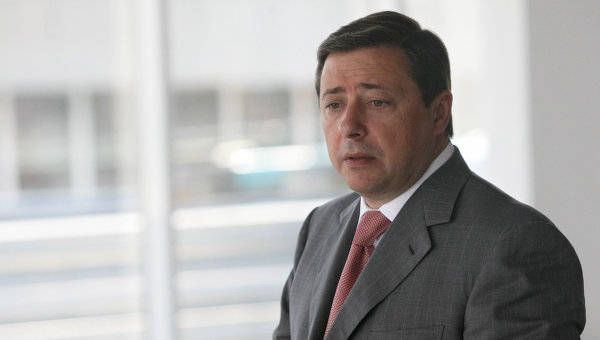
In North Caucasus, Ethnic Russians Worse Off Where There Are More of Them, Moscow Sociologist Says
Publication: Eurasia Daily Monitor Volume: 10 Issue: 56
By:

According to a Moscow sociologist, ethnic Russians are “paradoxically” more likely to suffer from discrimination in those republics of the North Caucasus where there are more of them. This finding suggests that ongoing efforts by the Kremlin and some republican leaders to promote the return of ethnic Russians to an area from which they continue to flee may exacerbate inter-ethnic relations across that region rather than lead to improvements that officials like Presidential Plenipotentiary Aleksandr Khloponin have promised.
Valery Korovin, deputy head of the Center for Conservative Research of Moscow State University’s sociology faculty, says that “the least difficult situation of ethnic Russians, however paradoxical it may sound, is where there are almost none of them left.” In Chechnya and Ingushetia, he suggests, “the picture is now quite calm” in large measure because ethnic Russians there officially form 1 to 1.5 percent of the population, but in fact may be even less numerous. They have become somewhat “exotic.” “Look, there is a real-life Russian,” people in those republics often say (evrazia.org/article/2252).
On the other hand, in those North Caucasian republics where there are more ethnic Russians, the situation they find themselves is “more difficult, more complicated, and more negative,” and they are inclined to depart as many of their co-ethnics already have, Korovin says. “In Kabardino-Balkaria, Karachaevo-Cherkessia, Adygea and North Ossetia, that is the case even though in the last instance, ethnic Russians are living among a primarily Orthodox Christian people.
Korovin, whose comments came in advance of a sociological conference on this subject scheduled for March 26 in Grozny, argues that it is important to provide greater coverage of discrimination against ethnic Russians in the North Caucasus in order to make the problem “more transparent” and thus ultimately solvable. But his analysis suggests just the opposite conclusion—namely, that the North Caucasians will accept a Russian presence only when it is small and that efforts to boost the size of that presence almost certainly will be counterproductive.
At the Grozny conference, Korovin is scheduled to speak on “Paths of Development of the Caucasus: With the Russians and Without—Putin’s Eurasian Alternative” (evrazia.info/news/1310). He is to be joined by a number of other regional specialists, but the highlight of the session will likely be the re-launch of the North Caucasus Federal District news agency and its refocusing specifically on “the violations of the rights of the ethnic Russian population, the restoration of the Russian cultural space in the North Caucasus, propaganda for the return of ethnic Russians to the North Caucasus and control over the activity of the local authorities and ethnic clans, [as well as] the exposure of corruption and of violations of federal law.”
The SKFONews.info site has covered such issues in the past—see for example its 2010 report on “The Russian Factor in the North Caucasus and Paths of Resolving the Problem of the Outflow of the Russian Population from the North Caucasus Republics” (skfonews.info/article/61), a study its authors said was prepared at Khloponin’s insistence because of his belief that the economic problems of the region can be solved only if skilled ethnic Russians return. But since then, Korovin says, opposition from the republican leaders to any criticism of themselves or their titular nationalities, their attacks on SKFONnews.info, and their unwillingness to release information has limited the news agency’s coverage of what might be called “the Russian problem.”
Now, however, it appears that the re-launched North Caucasus Federal District news agency is about to go on the offensive and address an issue that many North Caucasian leaders and nationalities are especially sensitive about—Russian flight and what can be done to stop and reverse it. That in itself is likely to increase tensions in the region and thus promote precisely the opposite outcome that Moscow and its loyalists are hoping for.
Korovin, who serves as an expert advisor to the news portal, says he welcomes this and promises that his own sociological research among the ethnic Russians of the North Caucasus will be featured on the news agency site. Thus, according to a report by Ernst Pliyev of Evrazia.org on March 25, “after a certain pause,” the North Caucasus Federal District website hopes to become an essential source for Russian reportage and expertise in the region. He adds, that “in the final analysis,” what will happen in precisely this area over the next several years will determine “not only individual human fates but that of the territorial integrity of Russia” itself.
Yet, both this argument and Moscow’s decision to make ethnic Russians the main prop of Russian power in the North Caucasus will infuriate many North Caucasians who are certain to view it as evidence that they and not the ethnic Russians are the real second-class citizens of the Russian Federation and draw the obvious conclusion from that observation.




